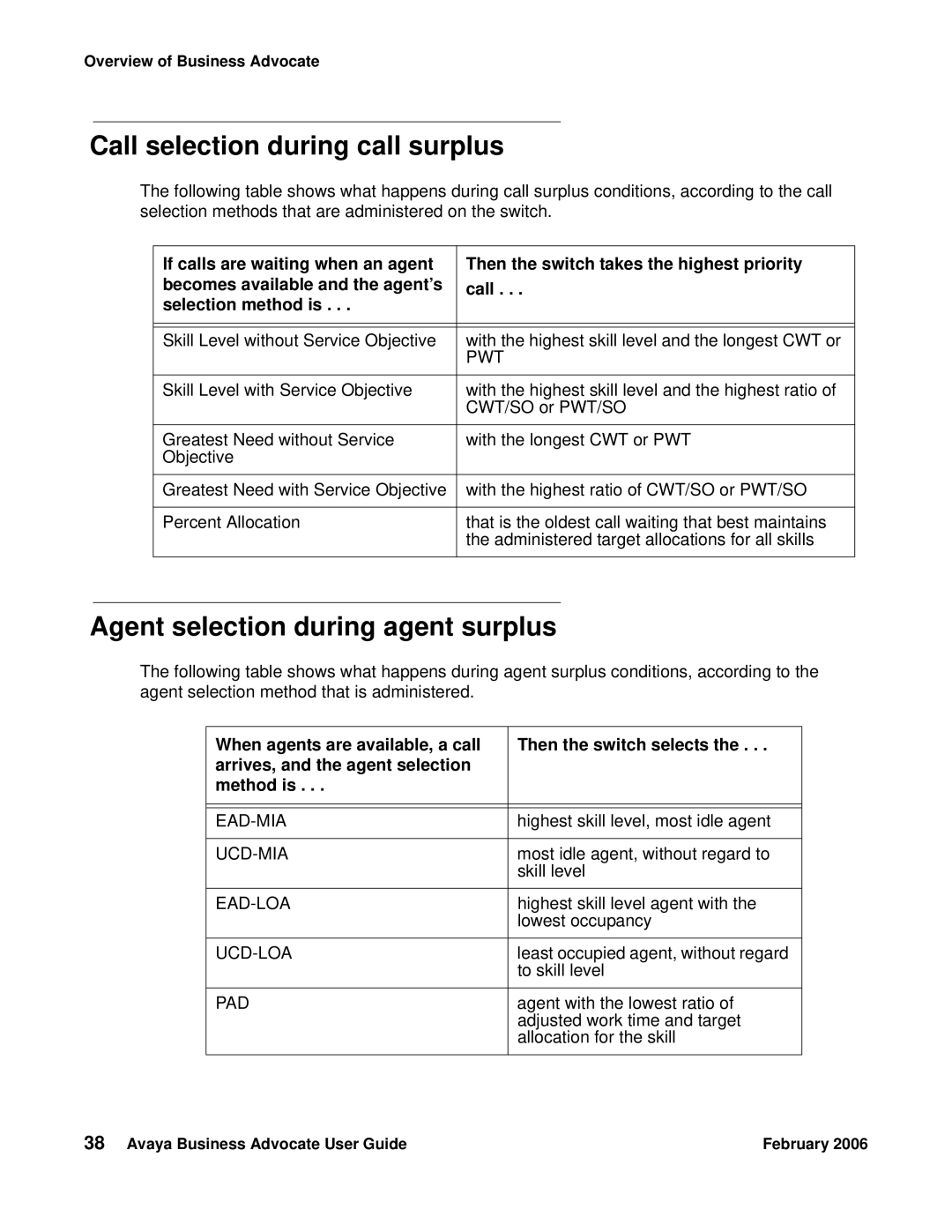
Overview of Business Advocate
Call selection during call surplus
The following table shows what happens during call surplus conditions, according to the call selection methods that are administered on the switch.
If calls are waiting when an agent | Then the switch takes the highest priority |
becomes available and the agent’s | call . . . |
selection method is . . . |
|
|
|
|
|
Skill Level without Service Objective | with the highest skill level and the longest CWT or |
| PWT |
|
|
Skill Level with Service Objective | with the highest skill level and the highest ratio of |
| CWT/SO or PWT/SO |
|
|
Greatest Need without Service | with the longest CWT or PWT |
Objective |
|
|
|
Greatest Need with Service Objective | with the highest ratio of CWT/SO or PWT/SO |
|
|
Percent Allocation | that is the oldest call waiting that best maintains |
| the administered target allocations for all skills |
|
|
Agent selection during agent surplus
The following table shows what happens during agent surplus conditions, according to the agent selection method that is administered.
When agents are available, a call | Then the switch selects the . . . |
arrives, and the agent selection |
|
method is . . . |
|
|
|
|
|
| highest skill level, most idle agent |
|
|
most idle agent, without regard to | |
| skill level |
|
|
| highest skill level agent with the |
| lowest occupancy |
|
|
least occupied agent, without regard | |
| to skill level |
|
|
PAD | agent with the lowest ratio of |
| adjusted work time and target |
| allocation for the skill |
|
|
38 Avaya Business Advocate User Guide | February 2006 |
